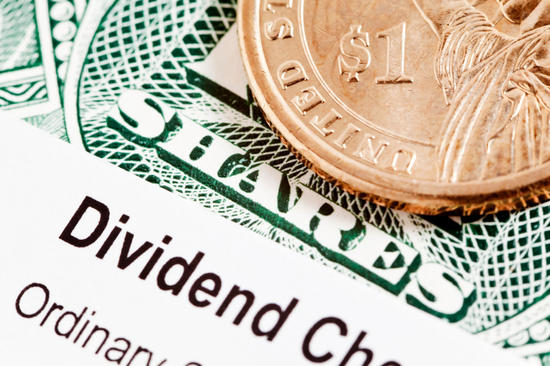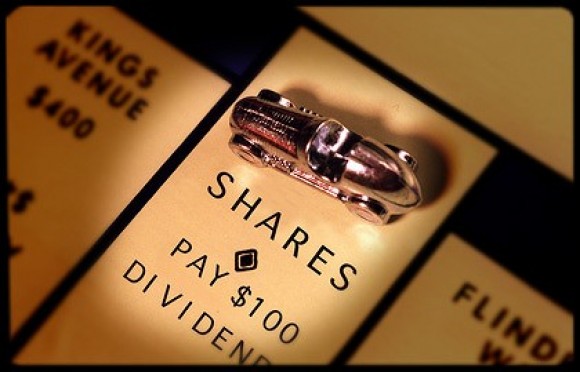Company Laws 6
DECLARING DIVIDEND FROM RESERVES

In the event of inadequacy or absence of profits in any year, dividend may be declared by a company for that year out of the accumulated profits earned by it in previous years and transferred by it to the reserves, subject to the conditions that –
- the rate of the dividend declared shall not exceed the average of the rates at which dividend was declared by it in the five years immediately preceding that year or ten per cent of its paid-up capital, whichever is less
- the total amount to be drawn from the accumulated profits earned in previous years and transferred to the reserves shall not exceed an amount equal to one-tenth of the sum of its paid-up capital and free reserves and the amount so drawn shall first be utilized to set off the losses incurred in the financial year before any dividend in respect of preference or equity shares is declared
- the balance of reserves after such drawal shall not fall below fifteen per cent of its paid-up share capital.
Conditions Governing Voluntary Transfer of Higher Percentage
Where a dividend is declared
- a minimum distribution sufficient for the maintenance of dividends to shareholders at a rate equal to the average of the rates at which dividends declared by it over the three years immediately preceding the financial year
- in a case where bonus shares have been issued in the financial year in which the dividend is declared or in the three years immediately preceding the financial year, a minimum distribution sufficient for the maintenance of dividends to shareholders at an amount equal to the average amount (quantum) of dividend declared over the three years immediately preceding the financial year, is ensured provided that in a case where the net profits after tax are lower by 20 per cent or more than the average net profits after tax of the two financial years immediately preceding, it shall not be necessary to ensure such minimum distribution
where no dividend is declared, the amount proposed to be transferred to its reserves from the current profits shall be lower than the average amount of the dividends to the shareholders declared by it over the three years immediately preceding the financial year.
Liked this article on Declaring Dividend From Reserves and have your own input that you would like to share? Comment below and don’t forget to SHARE THIS ARTICLE!
Image Source: rimolgreenhouses.com
PAYMENT OF DIVIDEND AND INTEREST FROM CAPITAL

Can Dividends Be Paid Out of Capital
Dividend cannot be paid out of capital, even if the articles of association authorize such payment. Dividend may be paid out of the following three sources only:
- out of current profits
- out of profits for any previous financial year or years
- out of moneys provided by the Government for the payment of dividend
Directors who knowingly paid dividends out of capital shall be held personally liable to make good the amount to the company. When a misrepresentation was made to the shareholders by the directors that the dividends were being paid out of profits while they were actually paid out of capital the shareholders would not be accountable and the directors alone would be accountable to the company. But if the members knowingly received dividend which was paid out of capital the directors would have a right of indemnity against such members. The shareholders cannot keep the dividend with them and have to return the amount received to the company. In another case, due to an unintentional mistake on the part of the directors, dividend was paid out of capital, on realizing/mistake the directors recovered such dividend. No action can be taken against such directors.
Therefore, it is clear that directors and officers of the company making such payment would commit an offence under the Act and they will also be liable to make good the amount so paid as dividend to the company.
Payment Of Interest Out Of Capital
The normal rule of law is that dividend can be paid only out of profits and must not be paid out of capital. An exemption to the rule in effect, provides that where shares are issued to raise money to defray the cost of works or building or of plant or project which cannot be made profitable for the long period, the company may pay interest on the amount of the capital paid-up in respect of such shares and may charge the same to capital as part of the cost of works, buildings or project or plant provided the following conditions are satisfied:
- The payment should be authorized by the articles. In the alternative, a special resolution is passed and prior sanction of the Government is obtained. Prior sanction of the Government is necessary even when the articles authorize such payment. Before sanctioning any such payment, the Government is empowered to appoint a person to inquire into and report to the Government on the circumstances of the case. It may even require the company to give security for payment of the costs of the inquiry.
- The payment of interest shall be made only for such period as may be determined by the Government and that period shall in no case extend beyond the close of the half-year next after the half-year during which the work or building has been actually completed or the plant provided.
- The rate of interest shall, in no case, exceed for per cent per annum or such other rate as the Government may notify in the Official Gazette.
- The payment of interest shall not operate as a reduction of the amount paid up on the shares in respect of which it is paid.
Payment of Dividend Out of Capital Profits
The term ‘capital profits’ may be defined to mean those profits that arise otherwise than in the normal course of the business and earned out of capital transactions. The usual sources of capital profits are:
- profits on sale of fixed assets
- profits on revaluation of fixed assets
- premium on issue of shares/debentures/bonds/redemption of debentures
- profits on reissue of forfeited shares
- capital redemption reserve account
- profit prior to incorporation, that is, profits that accrue to a company till the date of incorporation.
In two important cases of Lubbock v. British Bank of South America and Foster v. The New Trinidad Co. Ltd. The courts have held that capital profits cannot be considered as available for distribution as dividend unless:
- the articles of association authorize such a distribution
- the surplus is realized and remains after a valuation of the whole of the assets and liabilities.
Liked this article on Payment Of Dividend And Interest From Capital and have your own input that you would like to share? Comment below and don’t forget to SHARE THIS ARTICLE!
Image Source: gurufocus.com
WHEN IS DIVIDEND PAYABLE?

Dividend has to be distributed within 30 days of the declaration. Posting of dividend warrants within 30 days will be deemed to be payment irrespective of the fact whether the warrant has been encashed or not. In case of joint holders the warrant has to be sent to the registered address of the first named joint holder or to such persona and to such address as the joint holders may in writing direct.
However, in the following circumstances dividend need not be paid within 30 days:
- Where dividend could not be paid by reason of the operation of any law, for example in the case of non-residents, dividend need not be paid within 30 days if permission for remittance where required has not been received therefore from the Reserve within 30 days
- Where a shareholder has given directions to the company regarding the payment of dividend and these directions cannot be complied with
- Where there is a dispute regarding the right to receive dividend
- Where the dividend has been lawfully adjusted by the company against any sum due to it from the shareholder
Where for any reason for failure to pay the dividend or to post the warrant was not due to any default on the part of the company.
To Whom Is Dividend Payed?
A dividend in respect of a share has to be paid to the registered shareholder of the share or to his order or to his bankers. For this purpose, usually companies close the register of members or fix a record date, of which 7 days notice should be given by publication of advertisement in two newspapers. The purpose of the such notice is to give an opportunity to those who hold blank transfer deeds to lodge them with the company duly completed. Dividend is paid to those whose names appear on the record date or the last day of the closure of register of members, as the case may be. The dividend is payable to the shareholder whose name appears in the register of members on the appropriate date even though prior to that date he has sold the shares and the transfer deed in respect thereof has not been lodged with the company.
Liked this article on When Is Dividend Payable? Have any input of your own that you would like to share? Comment below and don’t forget to SHARE THIS ARTICLE!
Image Source: moderntips.com
WHAT HAPPENS TO IMPROPER DIVIDENDS

Liability of Directors, Shareholders and Auditors for Improper Dividend
The directors are personally liable to account for improper payment of dividend to the extent to which it has caused loss to the company. If for instance they have paid dividend out of capital they have to compensate the company for the loss. On the other hand, if a member received dividend knowing that it is paid out of capital he is liable to make good the loss of the company and the directors can recover the amount so paid. At the instance of any individual shareholder, the directors can recover the amount so paid. At the instance of any individual shareholder, the directors can be restrained from going ahead with the payment of an improper and illegal dividend.
And auditor who is party to the payment of dividend that is improper is liable to be proceeded against and the amount that is improperly paid may be recovered from him.
Once a dividend is declared a shareholder has the right to claim dividend against the company. A shareholder cannot compel the company by any process of law to declare a dividend. The usual practice is for the Board to recommend and the annual general meeting to declare the dividend. The annual general meeting will have the power, subject to the provisions of the Act to determine the amount of dividend to be distributed.
Revocation of Declared Dividend
As already stated earlier, a dividend including interim dividend once declared becomes a debt and cannot be revoked, except with the consent of the shareholders.
If a dividend is declared and paid to shareholders, the character of the payment cannot be altered by a subsequent resolution.
But where a dividend has been illegally declared, the directors will be justified in revoking the declared dividend. If an illegally declared dividend is paid then the directors shall be responsible, liable and accountable to the company personally.
Liked this article on What Happens To Improper Dividends and have your own input that you would like to share? Comment below and don’t forget to SHARE THIS ARTICLE!
Image Source: mobilecuisine.com
HOW A COMPANY ASCERTAINS DIVIDEND FROM PROFITS

‘Divisible profits’ means the profits that the law allows the company to distribute to the shareholders by way of dividend. ‘Profits available for dividend’ has been held to mean the profits that the directors consider should be distributed after making provision for depreciation or past losses, for reserves or for other purposes.
A proposal for declaration of dividend involves various considerations like the annual working of the company, future prospects of the company’s business, building up of adequate reserves for future expansion, etc. Simply because the company’s accounts disclose profits in any year, it does not follow that declaration of dividend is a must. The concept of ‘divisible profits’ is undefined and is a highly relative term. The quantum of profit, the rate of dividend previously maintained, tax liabilities, employees’ claim on bonus and similar other factors that are likely to claim a share in the profits have to be carefully scrutinized.
The question that would arise is as to how profits are calculated for this purpose. Dividend can be paid by a company:
-out of the profits of the company for that year after providing for depreciation and/or
-out of the profits of the company for the previous financial year or years arrived at after providing for depreciation and remaining undistributed or
-out of moneys provided by the Government for the payment of dividend pursuant to a guarantee given by the Government.
Excepting this, one cannot get any guidance from the Act as to how the profits are to be calculated for the purpose of payment of dividend. Every profit and loss account of a company should give a true and fair view of the profit and loss of the company for the financial year. It should be noted that the Act provides for details guidelines for computation of profits for the purpose of managerial remuneration, payment of donations to charitable and other purposes not connected with the business of the company.
Liked this article on How A Company Ascertains Dividend From Profits and have your own input that you would like to add? Comment below and don’t forget to SHARE THIS ARTICLE!
Image Source: tribune.com
WHAT IS DIVIDEND?

THE DEFINITION
Dividend is the return on the share capital subscribed for and paid to a company by its shareholders. The dictionary meaning of the term “dividend” is sum payable as interest on loan or as profit of a company to the creditors of an insolvent’s estate or an individual’s share of it. In commercial parlance, however, dividend is the share of the company’s profit distributed among the members.
THE DIFFERENCE BETWEEN DIVIDEND AND INTEREST
- While dividend is paid on preference and equity shares, interest is paid on debentures and long term and short term loans/borrowings including fixed deposits.
- Interest is a debt that like all debts is paid out of the company’s assets generally. A dividend however, becomes a debt only after the company has declared it.
- Dividend cannot be paid out of the assets of the company, generally it can be declared only out of the profit available for the purpose.
- Interest is a charge on profits while dividend is an appropriation of profits.
- The power to pay dividend is inherent in a company and is not derived from the Companies Act nor the Memorandum or Articles of Association, although the Act and the Articles generally regulate the manner in which dividends are to be declared.
- Right to claim dividend will only arise after the company in general meeting declares a dividend and until and unless it is so declared, the shareholder has no claim against the company in respect of it.
Liked this article on What Is Dividend? Have any input that you would like to share? Comment below and don’t forget to SHARE THIS ARTICLE!
Image Source: marketintelligencecenter.com





